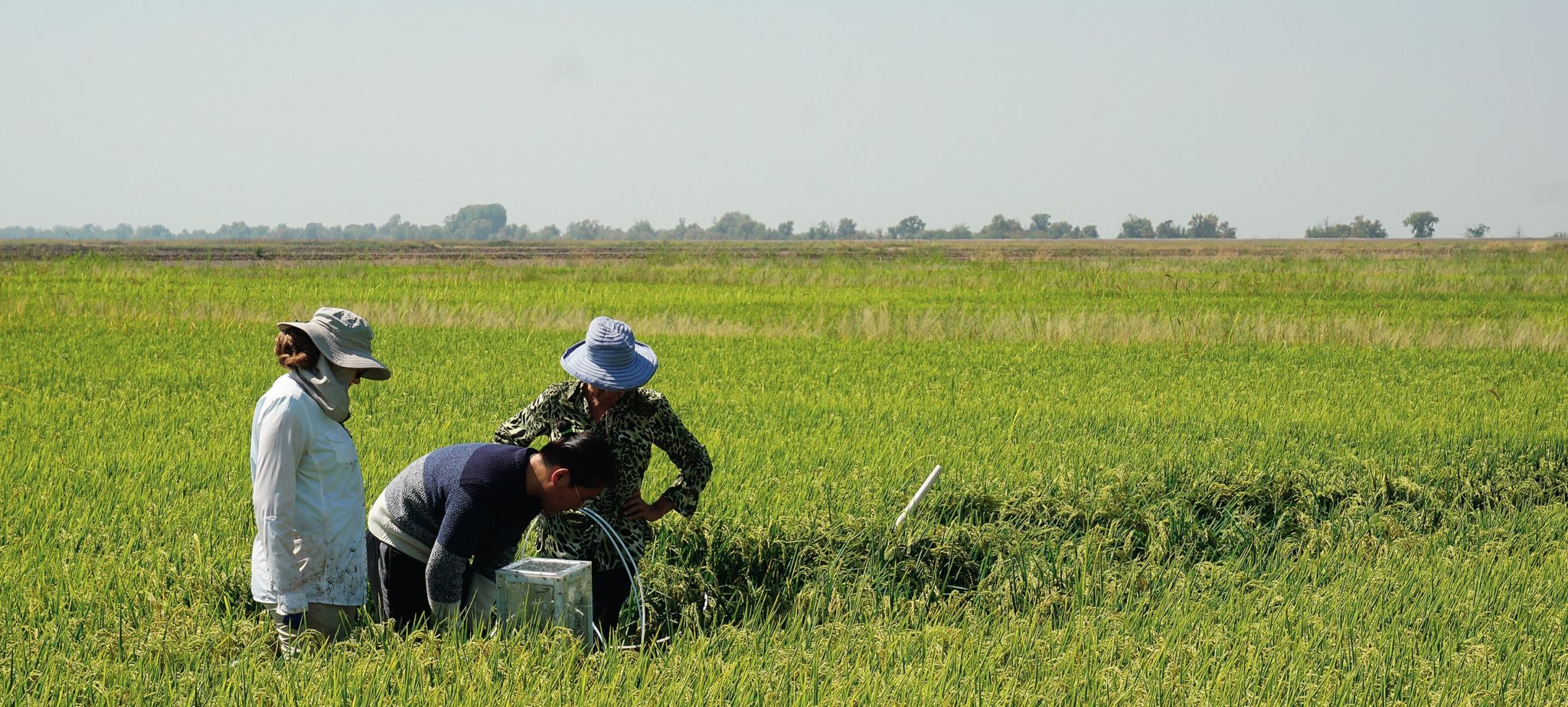The Intergovernmental Panel on Climate Change has cited carbon dioxide removal as essential to limiting warming to 1.5 degrees Celsius above preindustrial levels, the Paris Agreement’s climate target.
Carbon dioxide removal can be accomplished in a number of ways, such as through chemical processes that draw carbon from the air, or by trapping carbon from biomass and sequestering it deep underground. The most obvious and natural way is simply photosynthesis by plants and storage of carbon in soil via microbes.
It is estimated that plants and soil currently absorb roughly 30 percent of anthropogenic CO2 emissions each year. The problem is that some of that carbon goes back into the atmosphere when plants die and decompose. Soil carbon, however, can remain locked up for centuries.
Now, UC’s Innovative Genomics Institute is researching ways to use CRISPR gene-editing technology to “supercharge” photosynthesis in crops like rice and sorghum, allowing them to pull more carbon from the atmosphere, while also promoting more robust root development to store carbon deeper in the ground. Additionally, researchers are looking at ways to improve the ability of microbe communities to stabilize that carbon in the soil.
These supercharged plants could have other benefits as well. More efficient photosynthesis could mean higher yields with fewer inputs, such as fertilizer and irrigation. Increased soil carbon retention will improve soil structure, which in turn improves water-use efficiency and nutrient availability.
“We’ve understood for some years that CRISPR genome editing could be used to help agriculture adapt to climate change,” said Jennifer Doudna, Berkeley’s Nobel-winning professor of biochemistry and founder of the Innovative Genomics Institute governance board. “It’s a thrilling new step to apply the same tool kit to carbon removal and address climate change directly.”
…
California magazine is an editorially independent non-profit magazine. We need your support to keep producing award-winning journalism about the world of Berkeley and Berkeley in the world. Please consider a donation in any amount. Fiat Lux and Go Bears!




















